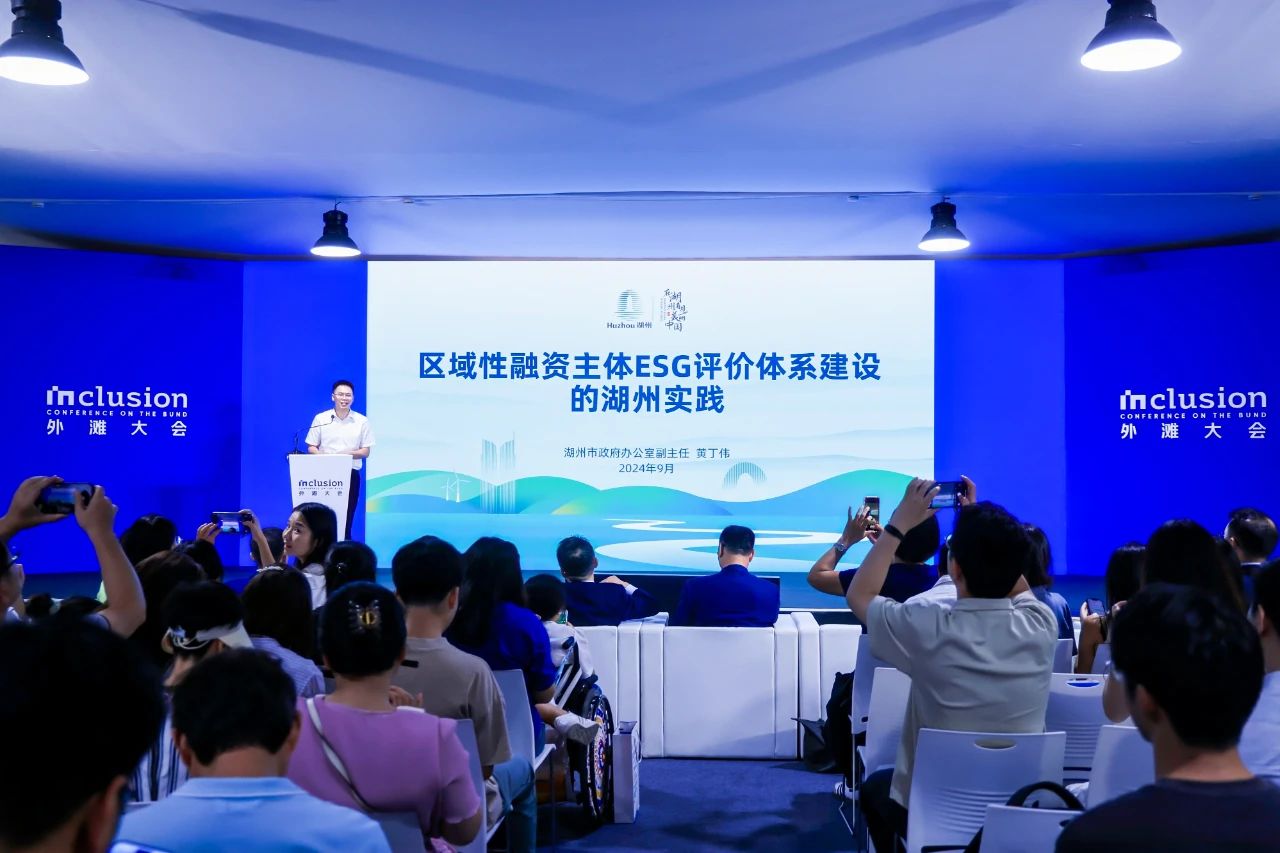On the afternoon of September 6, at the 2024 Conference on the Bund Insight Forum, the city, as the only invited municipal city, released the 5.0 version of the ESG evaluation system for financing entities, marking a new step in Huzhou's exploration in the field of green finance. The "unstoppable reform" of Huzhou was fully affirmed by experts such as Ma Jun, the director of the Green Finance Committee, China Society for Finance and Banking, and was also been highly recognized by the participating guests.

The "Resolution" of the 3rd Plenary Session of the 20th CPC Central Committee pointed out that it is necessary to accelerate the comprehensive green transformation of economic and social development. As an important carrier of financial instrument innovation and sustainable information disclosure, ESG can effectively guide the allocation of financial resources and promote high-quality financial services for green and low-carbon transformation. At the same time, ESG is also an important reference standard for international trade and investment, which has attracted extensive attention from various countries.
Since being approved as one of the first batch of pilot zones for green finance reform and innovations in China, Huzhou has always regarded the identification and evaluation of green financing entities as an important part of the green finance system construction. In June 2018, with reference to international guidelines such as the Principles for Responsible Investment (PRI), Huzhou released the first regional financing entity ESG evaluation model in China, which effectively solved the bottleneck of the difficulty in green identification. Since then, it has continued to iterate and upgrade the ESG evaluation model and launched a digital ESG evaluation system, effectively guiding financial resources to precisely support the sustainable development of small and medium-sized enterprises. In February this year, the Standardization Administration of the People's Republic of China and the People's Bank of China released the first batch of domestic ESG comprehensive standardization pilots, and the ESG evaluation standard for small and micro enterprises in Huzhou was successfully selected, being the first batch in the country.
In response to new requirements from higher authorities, Huzhou's financial system has quickly explored and released the ESG Evaluation System 5.0, effectively shouldering the task of green finance reform and innovation pilot. Compared with version 4.0, version 5.0 has significantly improved in terms of model index setting, evaluation method, and the evaluation process. It not only integrates international standards but also reflects the development practice with Chinese characteristics, especially in line with the deployment requirements for the comprehensive transition from " the dual control of energy intensity and total consumption " to "the dual control of carbon emissions”. In the environmental dimension, it highlights the "dual-carbon" target orientation and introduces the "carbon account" data to quantitatively assess the carbon emissions situation of enterprises, effectively guiding them to achieve green and low-carbon transformation. At the same time, it combines the industry characteristics and constructs evaluation models applicable to four major industrial categories: industry, agriculture, construction, and service industry, realizing a leap from "universal application" to "classified customization”. This innovative approach makes the evaluation system more practical, operational, and instructive.
In order to promote the application of the ESG evaluation system, Huzhou has taken strong measures in multiple aspects. By adopting the method of "ESG scoring + green attribute determination”, Huzhou conducts green enterprises certification and establishes a database of green enterprises and green projects. In the green finance policy 2.0 issued by the municipal government, the results of corporate ESG ratings are linked to the interest subsidy of green inclusive loans, and special policy support is provided. At the same time, Huzhou guides financial institutions to innovate product services, and applies ESG evaluation to various fields such as credit, insurance, and bonds, to provide enterprises with more convenient and lower-cost green financial services.
According to statistics, Huzhou has cumulatively carried out ESG evaluations for 22,000 enterprises and provided interest subsidies of 76.31 million yuan for 873 green enterprises.
Source: Huzhou Finance


